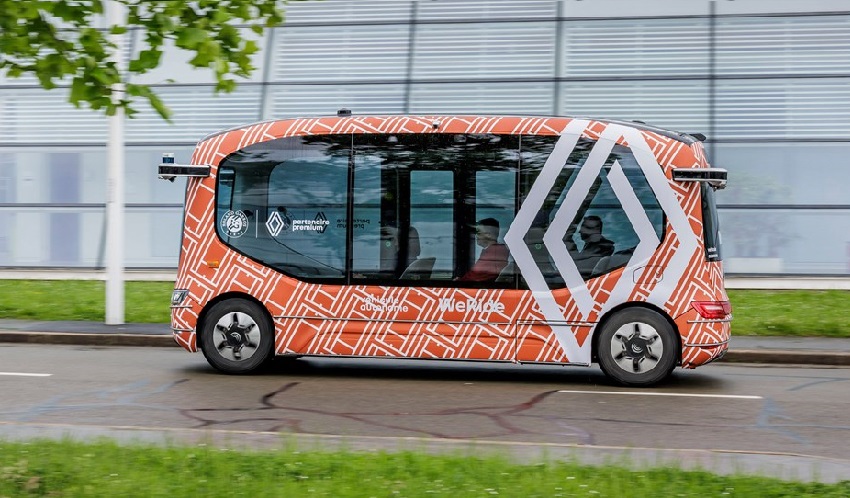Renault Group partners with WeRide, an expert company in autonomous driving, aiming to launch a large-scale offering of Level 4 (L4) autonomous vehicles for public transportation.
These units will be capable of managing driving situations autonomously, within a defined operational scope, with remote supervision but without an onboard operator.
The manufacturer explains that in Europe alone, over 400 major cities will gradually become low-emission zones while ensuring the mobility of their populations, thus seeing a market for launching their proposal.
Additionally, it’s worth mentioning that in a statement, the French group explains that WeRide has become a global leader in autonomous vehicles with over 700 units in service (including 300 minibuses), having covered more than 28 million kilometers in Asia, the Middle East, and North America, and soon in Europe with Renault Group.
Furthermore, the French firm points out that this proposal aligns with its strategy of conducting experiments for several years to define the best response to the needs of territorial entities, such as the Mach 2 project announced in 2023.
This project will involve a fleet of automated electric minibuses integrated into the public transport network of the metropolis of Châteauroux in France starting from 2026.
Over time, these experiments will enable them to offer a robotic platform for electric minibuses based on the New Renault Master, which can integrate automation solutions from specialized partners such as EasyMile, Milla, or WeRide.
Additionally, Renault Group indicates that autonomous minibuses are flexible and will be able to operate seven days a week, 24 hours a day, safely, and will be a zero-emission alternative.
It also details that the additional costs of robotization and automation can be offset by the absence of onboard operators, as simple remote supervision will suffice to operate a fleet.
Renault also invests in private autonomous vehicles
Regarding private vehicles, Renault Group indicates that it is focusing its efforts on Level L2 or even L2+ of autonomous driving.
They feature driving aids such as contextual speed control or lane-keeping assistance, and soon, automatic overtaking function.
This way, the French company ensures that its units are “safe and pleasant to drive with absolute confidence.”
However, even with assistance, the driver remains responsible for driving.
It is worth noting that there is international consensus around 6 levels of “automated and autonomous driving,” ranging from Level L0 to L5, the highest level where the vehicle would be fully autonomous in all situations and without an onboard operator.
Nevertheless, Renault Group does not consider reaching Level L3 a short-term priority.
In fact, there is a significant technological complexity gap between Level L2 and L3 because the vehicle must be able to operate safely in complex environments with limited driver supervision.
At this stage, the cost that customers would have to bear compared to the driving benefits would make demand insufficient or even anecdotal, explains the company.
However, the group indicates that it is ensuring that the architecture of its vehicles can evolve towards autonomous driving if expectations, regulations, or even the cost of technologies make this disruption possible.







